Resources
Download GIS Data (.zip)
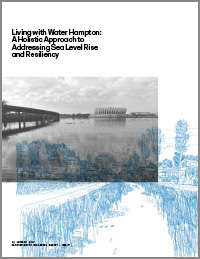
Resilient Hampton - Phase I Report
Living with Water Hampton: A Holistic Approach to Addressing Sea Level Rise and Resiliency
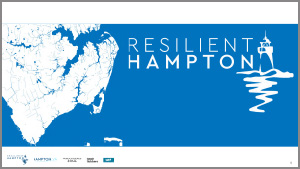
Resilient Hampton - Webinar Presentation (PDF)
David Imburgia, Resiliency Officer, Community Development Dept., City of Hampton, Virginia
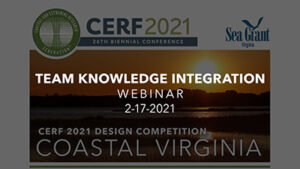
Team Knowledge Integration - Webinar Presentation (PDF)
Dr. Troy Hartley, Director, Virginia Sea Grant
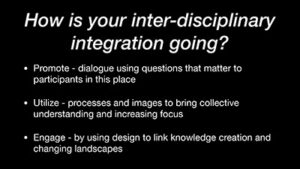
Team Knowledge Integration - Webinar Presentation 2 (PDF)
Robert Corry, University of Guelph, School of Environmental Design and Rural Development
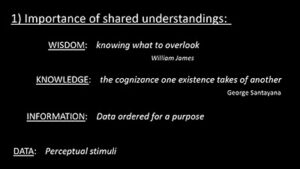
Team Knowledge Integration - Webinar Presentation 3 (PDF)
Dave Hulse, University of Florida, Florida Institute for Built Environment Resilience (FIBER)
Video Content
Additional Photo Content
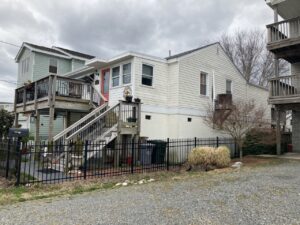
Buckroe Beach
Neighborhood photos taken by members of the community.
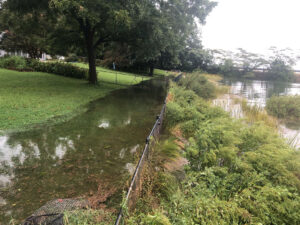
Phoebus
Neighborhood photos taken by members of the community.
Online Resources
Terminology excerpted from the UNDRR
https://www.undrr.org/terminology
Disaster risk management is the systematic process of using administrative directives, organizations, and operational skills and capacities to implement strategies, policies, and improved coping capacities to lessen the adverse impacts of hazards and the possibility of disaster. It aims to avoid, lessen or transfer the adverse effects of hazards through activities and measures for prevention, mitigation, and preparedness (UNISDR).
Disaster risk reduction is the concept and practice of reducing disaster risks through systematic efforts to analyze and manage the causal factors of disasters, including through reduced exposure to hazards, lessened vulnerability of people and property, wise management of land and the environment, and improved preparedness for adverse events (guided by the global policy set out in the Hyogo Framework for Action 2005-2015: Building the Resilience of Nations and Communities to Disasters).
Hazard is a process, phenomenon, or human activity that may cause loss of life, injury or other health impacts, property damage, social and economic disruption, or environmental degradation.
Resilience means the ability of a system, community, or society exposed to hazards to resist, absorb, accommodate to and recover from the effects of the hazard in a timely and efficient manner, including through the preservation and restoration of its essential basic structures and functions (UNISDR). Resilience focuses investment on increasing a city area’s overall ability to support a vibrant, healthy society and economy under a wide range of circumstances (ICLEI).
Sustainable urbanization is a process that promotes an integrated, gender-sensitive, and pro-poor approach to the social, economic, and environmental pillars of sustainability. It is based on participatory planning and decision-making processes, and inclusive governance (UN-HABITAT). The principles of sustainable urbanization involve:
- Accessible and pro-poor land, infrastructure, services, mobility, and housing;
- Socially inclusive, gender-sensitive, healthy, and safe development;
- Environmentally sound and carbon-efficient built environment;
- Participatory planning and decision-making processes;
- Vibrant and competitive local economies promoting decent work and livelihoods;
- Assurance of non-discrimination and equitable rights to the city; and
- Empowering cities and communities to plan for and effectively manage adversity and change to build resilience.
Vulnerability is the conditions determined by physical, social, economic, and environmental factors or processes which increase the susceptibility of an individual, a community, assets, or systems to the impacts of hazards.
Consult UNISDR’s Disaster Risk Reduction Terminology for additional definitions at http://www.unisdr.org/terminology and UNDRR at https://www.undrr.org/terminology
GENERAL INFORMATION RESOURCES
Georgetown Climate Center Adaptation Clearinghouse Coastal Sector
https://www.adaptationclearinghouse.org/
An online database and networking site that serves policymakers and others who are working to help coastal communities adapt to climate change.
Coastal Flood Exposure Mapper
https://coast.noaa.gov/floodexposure/
This online visualization tool supports communities that are assessing their coastal hazard risks and vulnerabilities through user-defined maps that show the people, places, and natural resources exposed to coastal flooding. In addition, the tool provides guidance for using these maps to engage community members and stakeholders.
Surging Sea by Climate Central
https://riskfinder.climatecentral.org/
Climate Central’s Surging Seas Risk Finder’s interactive toolkit includes maps, local sea level and flood risk projections, and potential impacts for communities. It also provides customized downloadable tables and figures for communication and education.
RESILIENCE SCORECARDS AND INDICATORS
UNDRR (UN Office for Disaster Risk Reduction) Disaster Resilience Scorecard
https://www.unisdr.org/campaign/resilientcities/toolkit/article/disaster-resilience-scorecard-for-cities
UVA Resilience Adaptation Feasibility Tool
https://raft.ien.virginia.edu
Community Rating System
https://www.dcr.virginia.gov/dam-safety-and-floodplains/fp-crs
The Community Rating System (CRS) is a voluntary program under the National Flood Insurance Program (NFIP). CRS awards policyholders reduced flood insurance premiums for actions taken by local government to reduce flooding.
STATE AND LOCAL INFORMATION
Virginia Coastal Policy Center– Reports page
https://law.wm.edu/academics/programs/jd/electives/clinics/vacoastal/reports/index.php
Hampton Roads Planning District Commission
https://www.hrpdcva.gov
https://getfloodfluent.org/
https://www.hrpdcva.gov/page/census-data/
Commonwealth Center for Recurrent Flooding Resiliency– Reports & Web Resources
https://www.floodingresiliency.org/resources-partners/reports/
ADAPTVA
http://adaptva.com/
ADAPTVA focuses on physical and social vulnerabilities by integrating legal and policy resources, stories that explain adaption through maps and pictures, a searchable web catalog, and mapping tools that address short and long-term predictions for rising water levels.
Coastal Resilience for the Eastern Shore of Virginia (The Nature Conservancy)
https://maps.coastalresilience.org/virginia/
Coastal Resilience is a decision support tool to enable communities to visualize the risks of sea-level rise and storm surges for the people, economy, and coastal habitats of the Eastern Shore and to identify nature-based solutions for enhancing resilience and reducing risks where possible.
Virginia Flood Risk Information System (VFRIS)
http://cmap2.vims.edu/VaFloodRisk/vfris2.html
The Virginia Flood Risk Information System (VFRIS) includes information from the National Flood Hazard Layer, National Flood Insurance Program, and Digital Flood Rate Maps provided by FEMA to localities across Virginia, as well as data from the National Fish and Wildlife Service, U.S. Geological Survey, and Esri.
Floodplain Management Resources (Virginia DCR)
https://www.dcr.virginia.gov/dam-safety-and-floodplains/fppubs
Bulleted list of links organized by Federal, State, Professional Association Resources, Mapping and Training Opportunities.
Virginia Department of Emergency Management
https://www.vaemergency.gov/
State website with emergency information such as Know Your Zone, emergency trainings, grant opportunities, and social media links to stay up to date on emergency information.
Know Your Zone Evacuation Information
https://www.vaemergency.gov/hurricane-evacuation-zone-lookup/
Information on Coastal Virginia’s tiered evacuation zones and associated evacuation routes.
VIMS Coastal Resources Management Living Shorelines Guidance
https://www.vims.edu/ccrm/research/ecology/living_shorelines/index.php
Explanation of the importance of living shorelines and recent publications.
Virginia Protected Lands Program
https://www.dcr.virginia.gov/land-conservation/whereto6
Resources and tools regarding land conservation for landowners, citizens, and land trusts.
Resilient Hampton Project
https://hampton.gov/3459/Resilient-Hampton
Current information and resources specific to Hampton
Wetlands Watch
http://wetlandswatch.org
Information and links to other resilience efforts in Coastal Virginia
Virginia Sea Grant
https://vaseagrant.org
The Design Competition organizers are working directly with local contacts to provide information for site assessment and extensive resources for the teams to maximize input of local community priorities from the start of the design process.
